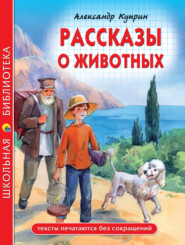По всем вопросам обращайтесь на: info@litportal.ru
(©) 2003-2025.
✖
The Duel
Настройки чтения
Размер шрифта
Высота строк
Поля
Romashov bowed.
“You are very polite! At least you might say Enchanté, madame!” (“Edchadté, badabe” was what Romashov heard.) “Isn’t he a blockhead, Count?”
“Of course, I remember,” mumbled Romashov insincerely. “I thank you for the great honour.”
Bobetinski did nothing to liven up the evening. He conducted the ball with an apathetic, condescending look, just as if he was performing, from a strict sense of duty, something very distasteful and uninteresting to himself, but of infinite importance to the rest of mankind. When, however, the third quadrille was about to begin, he got, as it were, a little new life, and, as he hurried across the room with the long gliding steps of a skater, he shouted in a loud voice:
“Quadrille monstre! Cavaliers, engagez vos dames!”
Romashov and Raisa Alexandrovna took up a position close to the window of the music gallery, with Michin and Madame Lieschtschenko for their vis-à-vis. The latter hardly reached up to her partner’s shoulders. The number of dancers had now very noticeably increased, and the couples stood up for the third quadrille. Every dance had therefore to be repeated twice.
“There must be an explanation; this must be put a stop to,” thought Romashov, almost deafened by the noise of the big drums and the braying brass instruments in his immediate proximity. “I have had enough! ‘And in his countenance you could read fixed resolution.’”
The “dancing-masters” and those who arranged the regimental balls had preserved by tradition certain fairly innocent frolics and jokes for such soirées, which were greatly appreciated by the younger dancers. For instance, at the third quadrille it was customary, as it were accidentally, by changing the dances, to cause confusion among the dancers, who with uproar and laughter did their part in increasing the general disorder. Bobetinski’s device that evening consisted in the gentlemen pretending to forget their partners and dancing the figure by themselves. Suddenly a “galop all round” was ordered, the result of which was a chaos of ladies and gentlemen rushing about in fruitless search for their respective partners.
“Mesdames, avancez – pardon, reculez. Gentlemen, alone. Pardon – balancez avec vos dames!”
Raisa Alexandrovna kept talking to Romashov in the most virulent tone and panting with fury, but smiling all the while as if her conversation was wholly confined to pleasant and joyous subjects.
“I will not allow any one to treat me in such a manner, do you hear? I am not a good-for-nothing girl you can do as you like with. Besides, decent people don’t behave as you are behaving.”
“Raisa Alexandrovna, for goodness’ sake try to curb your temper,” begged Romashov in a low, imploring tone.
“Angry with you? No, sir, that would be to pay you too high a compliment. I despise you, do you hear? Despise you; but woe to him who dares to play with my feelings! You left my letter unanswered. How dare you?”
“But your letter did not reach me, I assure you.”
“Ha! don’t try to humbug me. I know your lies, and I also know where you spend your time. Don’t make any mistake about that.
“Do you think I don’t know this woman, this Lilliput queen, and her intrigues? Rather, you may be sure of that,” Raisa went on to say. “She fondly imagines she’s a somebody; yes, she does! Her father was a thieving notary.”
“I must beg you, in my presence, to express yourself in a more decent manner in regard to my friends,” interrupted Romashov sharply.
Then and there a painful scene occurred. Raisa stormed and broke out in a torrent of aspersions on Shurochka. The fury within her had now the mastery; her artificial smiles were banished, and she even tried to drown the music by her snuffly voice. Romashov, conscious of his impotence to try to put in a word in defence of the grossly insulted Shurochka, was distracted with shame and wrath. In addition to this were the intolerable din of the band and the disagreeable attention of the bystanders, which his partner’s unbridled fury was beginning to attract.
“Yes, her father was a common thief; she has nothing to stick her nose in the air about and she ought, to be sure, to be very careful not to give herself airs!” shrieked Raisa. “And for a thing like that to dare to look down on us! We know something else about her, too!”
“I implore you!” whispered Romashov.
“Don’t make any mistake about it; both you and she shall feel my claws. In the first place, I shall open her husband’s eyes – the eyes of that fool Nikoläiev, who has, for the third time, been ‘ploughed’ in his exam. But what else can one expect from a fool like that, who does not know what is going on under his nose? And it is certainly no longer any secret who the lover is.”
“Mazurka générale! Promenade!” howled Bobetinski, who at that moment was strutting through the room with the pomp of an archangel.
The floor rocked under the heavy tramping of the dancers, and the muslin curtains and coloured lamps moved in unison with the notes of the mazurka.
“Why cannot we part as friends?” Romashov asked in a shy tone. He felt within himself that this woman not only caused him indescribable disgust, but also aroused in his heart a cowardice he could not subdue, and which filled him with self-contempt. “You no longer love me; let us part good friends.”
“Ha! ha! You’re frightened; you’re trying to cut my claws. No, my fine fellow. I am not one of those who are thrown aside with impunity. It is I, mind you, who throw aside one who causes me disgust and loathing – not the other way about. And as for your baseness – ”
“That’s enough; let’s end all this talk,” said Romashov, interrupting her in a hollow voice and with clenched teeth.
“Five minutes’ entr’acte. Cavaliers, occupez vos dames!” shouted Bobetinski.
“I’ll end it when I think fit. You have deceived me shamefully. For you I have sacrificed all that a virtuous woman can bestow. It is your fault that I dare not look my husband in the face – my husband, the best and noblest man on earth. It’s you who made me forget my duties as wife and mother. Oh, why, why did I not remain true to him!”
Romashov could not, however, now refrain from a smile. Raisa Alexandrovna’s innumerable amours with all the young, new-fledged officers in the regiment were an open secret, and both by word of mouth and in her letters to Romashov she was in the habit of referring to her “beloved husband” in the following terms: “my fool,” or “that despicable creature,” or “this booby who is always in the way,” etc., etc.
“Ah, you have even the impudence to laugh,” she hissed; “but look out now, sir, it is my turn.”
With these words she took her partner’s arm and tripped along, with swaying hips and smiling a vinegary smile on all sides. When the dance was over her face resumed its former expression of hatred. Again she began to buzz savagely – “like an angry wasp,” thought Romashov.
“I shall never forgive you this, do you hear? Never. I know the reason why you have thrown me over so shamelessly and in such a blackguardly fashion; but don’t fondly imagine that a new love-intrigue will be successful. No; never, as long as I live, shall that be the case. Instead of acknowledging in a straightforward and honourable way that you no longer love me, you have preferred to cloak your treachery and treat me like a vulgar harlot, reasoning, I suppose, like this: ‘If it does not come off with the other, I always have her, you know.’ Ha! ha! ha!”
“All right, you may perhaps allow me to speak decently,” began Romashov, with restrained wrath. His face grew paler and paler, and he bit his lips nervously. “You have asked for it, and now I tell you straight. I do not love you.”
“Oh, what an insult!”
“I have never loved you; nor did you love me. We have both played an unworthy and false game, a miserable, vulgar farce with a nauseous plot and disgusting rôles. Raisa Alexandrovna, I have studied you, and I know you, very likely, better than you do yourself. You lack every requisite of love, tenderness, nay, even common affection. The cause of it is your absolutely superficial character, your narrow, petty outlook on life. And, besides” (Romashov happened to remember at this point Nasanski’s words), “only elect, refined natures can know what a great or real love is.”
“Such elect, refined natures, for instance, as your own.”
Once more the band thundered forth. Romashov looked almost with hatred at the trombone’s wide, shining mouth, that, with the most cynical indifference, flung out its hoarse, howling notes over the whole of the room. And its fellow-culprit – the poor soldier who, with the full force of his lungs, gave life to the instrument – was with his bulging eyes and blue, swollen cheeks, no less an object of his dislike and disgust.
“Don’t let us quarrel about it. It is likely enough that I am not worthy of a great and real love, but we are not discussing that now. The fact is that you, with your narrow, provincial views and silly vanity, must needs always be surrounded by men dancing attendance on you, so that you may be able to boast about it to your lady friends in what you are pleased to call ‘Society.’ And possibly you think I have not understood the purpose of your ostentatiously familiar manner with me at the regimental soirées, your tender glances, etc., the intimately dictatorial tone you always assume when we are seen together. Yes, precisely the chief object was that people should notice the free-and-easy way in which you treated me. Except for this all your game would not have had the slightest meaning, for no real love or affection on my part has ever formed part of your – programme.”
“Even if such had been the case I might well have chosen a better and more worthy object than you,” replied Raisa, in a haughty and scornful tone.
“Such an answer from you is too ridiculous to insult me; for, listen, I repeat once more, your absurd vanity demands that some slave should always be dancing attendance on you. But the years come and go, and the number of your slaves diminishes. Finally, in order not to be entirely without admirers, you are forced to sacrifice your plighted troth, your duties as wife and mother.”
“No; but that’s quite sufficient. You shall most certainly hear from me,” whispered Raisa, in a significant tone and with glittering eyes.
At that moment, Captain Peterson came across the room with many absurd skips and shuffles in order to avoid colliding with the dancers. He was a thin, consumptive man with a yellow complexion, bald head, and black eyes, in the warm and moist glance of which lurked treachery and malice. It was said of him that, curiously enough, he was to such an extent infatuated with his wife that he played the part of intimate friend, in an unctuous and sickening way, with all her lovers. It was likewise common knowledge that he had tried by means of acrimonious perfidy and the most vulgar intrigues to be revenged on every single person who had, with joy and relief, turned his back on the fair Raisa’s withered charms.
He smiled from a distance at his wife and Romashov with his bluish, pursed lips.
“Are you dancing, Romashov? Well, how are you, my dear Georgi? Where have you been all this time? My wife and I were so used to your company that we have been quite dull without you.”
“Been awfully busy,” mumbled Romashov.
“Ah, yes, we all know about those military duties,” replied Captain Peterson, with a little insinuating whistle that was directly changed into an amicable smile. His black eyes with their yellow pupils wandered, however, from Raisa to Romashov inquisitively.
“I have an idea that you two have been quarrelling. Why do you both look so cross? What has happened?”
Romashov stood silent whilst he gazed, worried and embarrassed, at Raisa’s skinny, dark, sinewy neck. Raisa answered promptly, with the easy insolence she invariably displayed when lying:
“Yuri Alexievich is playing the philosopher. He declares that dancing is both stupid and ridiculous, and that he has seen his best days.”
“And yet he dances?” replied the Captain, with a quick, snake-like glance at Romashov. “Dance away, my children, and don’t let me disturb you.”
“You are very polite! At least you might say Enchanté, madame!” (“Edchadté, badabe” was what Romashov heard.) “Isn’t he a blockhead, Count?”
“Of course, I remember,” mumbled Romashov insincerely. “I thank you for the great honour.”
Bobetinski did nothing to liven up the evening. He conducted the ball with an apathetic, condescending look, just as if he was performing, from a strict sense of duty, something very distasteful and uninteresting to himself, but of infinite importance to the rest of mankind. When, however, the third quadrille was about to begin, he got, as it were, a little new life, and, as he hurried across the room with the long gliding steps of a skater, he shouted in a loud voice:
“Quadrille monstre! Cavaliers, engagez vos dames!”
Romashov and Raisa Alexandrovna took up a position close to the window of the music gallery, with Michin and Madame Lieschtschenko for their vis-à-vis. The latter hardly reached up to her partner’s shoulders. The number of dancers had now very noticeably increased, and the couples stood up for the third quadrille. Every dance had therefore to be repeated twice.
“There must be an explanation; this must be put a stop to,” thought Romashov, almost deafened by the noise of the big drums and the braying brass instruments in his immediate proximity. “I have had enough! ‘And in his countenance you could read fixed resolution.’”
The “dancing-masters” and those who arranged the regimental balls had preserved by tradition certain fairly innocent frolics and jokes for such soirées, which were greatly appreciated by the younger dancers. For instance, at the third quadrille it was customary, as it were accidentally, by changing the dances, to cause confusion among the dancers, who with uproar and laughter did their part in increasing the general disorder. Bobetinski’s device that evening consisted in the gentlemen pretending to forget their partners and dancing the figure by themselves. Suddenly a “galop all round” was ordered, the result of which was a chaos of ladies and gentlemen rushing about in fruitless search for their respective partners.
“Mesdames, avancez – pardon, reculez. Gentlemen, alone. Pardon – balancez avec vos dames!”
Raisa Alexandrovna kept talking to Romashov in the most virulent tone and panting with fury, but smiling all the while as if her conversation was wholly confined to pleasant and joyous subjects.
“I will not allow any one to treat me in such a manner, do you hear? I am not a good-for-nothing girl you can do as you like with. Besides, decent people don’t behave as you are behaving.”
“Raisa Alexandrovna, for goodness’ sake try to curb your temper,” begged Romashov in a low, imploring tone.
“Angry with you? No, sir, that would be to pay you too high a compliment. I despise you, do you hear? Despise you; but woe to him who dares to play with my feelings! You left my letter unanswered. How dare you?”
“But your letter did not reach me, I assure you.”
“Ha! don’t try to humbug me. I know your lies, and I also know where you spend your time. Don’t make any mistake about that.
“Do you think I don’t know this woman, this Lilliput queen, and her intrigues? Rather, you may be sure of that,” Raisa went on to say. “She fondly imagines she’s a somebody; yes, she does! Her father was a thieving notary.”
“I must beg you, in my presence, to express yourself in a more decent manner in regard to my friends,” interrupted Romashov sharply.
Then and there a painful scene occurred. Raisa stormed and broke out in a torrent of aspersions on Shurochka. The fury within her had now the mastery; her artificial smiles were banished, and she even tried to drown the music by her snuffly voice. Romashov, conscious of his impotence to try to put in a word in defence of the grossly insulted Shurochka, was distracted with shame and wrath. In addition to this were the intolerable din of the band and the disagreeable attention of the bystanders, which his partner’s unbridled fury was beginning to attract.
“Yes, her father was a common thief; she has nothing to stick her nose in the air about and she ought, to be sure, to be very careful not to give herself airs!” shrieked Raisa. “And for a thing like that to dare to look down on us! We know something else about her, too!”
“I implore you!” whispered Romashov.
“Don’t make any mistake about it; both you and she shall feel my claws. In the first place, I shall open her husband’s eyes – the eyes of that fool Nikoläiev, who has, for the third time, been ‘ploughed’ in his exam. But what else can one expect from a fool like that, who does not know what is going on under his nose? And it is certainly no longer any secret who the lover is.”
“Mazurka générale! Promenade!” howled Bobetinski, who at that moment was strutting through the room with the pomp of an archangel.
The floor rocked under the heavy tramping of the dancers, and the muslin curtains and coloured lamps moved in unison with the notes of the mazurka.
“Why cannot we part as friends?” Romashov asked in a shy tone. He felt within himself that this woman not only caused him indescribable disgust, but also aroused in his heart a cowardice he could not subdue, and which filled him with self-contempt. “You no longer love me; let us part good friends.”
“Ha! ha! You’re frightened; you’re trying to cut my claws. No, my fine fellow. I am not one of those who are thrown aside with impunity. It is I, mind you, who throw aside one who causes me disgust and loathing – not the other way about. And as for your baseness – ”
“That’s enough; let’s end all this talk,” said Romashov, interrupting her in a hollow voice and with clenched teeth.
“Five minutes’ entr’acte. Cavaliers, occupez vos dames!” shouted Bobetinski.
“I’ll end it when I think fit. You have deceived me shamefully. For you I have sacrificed all that a virtuous woman can bestow. It is your fault that I dare not look my husband in the face – my husband, the best and noblest man on earth. It’s you who made me forget my duties as wife and mother. Oh, why, why did I not remain true to him!”
Romashov could not, however, now refrain from a smile. Raisa Alexandrovna’s innumerable amours with all the young, new-fledged officers in the regiment were an open secret, and both by word of mouth and in her letters to Romashov she was in the habit of referring to her “beloved husband” in the following terms: “my fool,” or “that despicable creature,” or “this booby who is always in the way,” etc., etc.
“Ah, you have even the impudence to laugh,” she hissed; “but look out now, sir, it is my turn.”
With these words she took her partner’s arm and tripped along, with swaying hips and smiling a vinegary smile on all sides. When the dance was over her face resumed its former expression of hatred. Again she began to buzz savagely – “like an angry wasp,” thought Romashov.
“I shall never forgive you this, do you hear? Never. I know the reason why you have thrown me over so shamelessly and in such a blackguardly fashion; but don’t fondly imagine that a new love-intrigue will be successful. No; never, as long as I live, shall that be the case. Instead of acknowledging in a straightforward and honourable way that you no longer love me, you have preferred to cloak your treachery and treat me like a vulgar harlot, reasoning, I suppose, like this: ‘If it does not come off with the other, I always have her, you know.’ Ha! ha! ha!”
“All right, you may perhaps allow me to speak decently,” began Romashov, with restrained wrath. His face grew paler and paler, and he bit his lips nervously. “You have asked for it, and now I tell you straight. I do not love you.”
“Oh, what an insult!”
“I have never loved you; nor did you love me. We have both played an unworthy and false game, a miserable, vulgar farce with a nauseous plot and disgusting rôles. Raisa Alexandrovna, I have studied you, and I know you, very likely, better than you do yourself. You lack every requisite of love, tenderness, nay, even common affection. The cause of it is your absolutely superficial character, your narrow, petty outlook on life. And, besides” (Romashov happened to remember at this point Nasanski’s words), “only elect, refined natures can know what a great or real love is.”
“Such elect, refined natures, for instance, as your own.”
Once more the band thundered forth. Romashov looked almost with hatred at the trombone’s wide, shining mouth, that, with the most cynical indifference, flung out its hoarse, howling notes over the whole of the room. And its fellow-culprit – the poor soldier who, with the full force of his lungs, gave life to the instrument – was with his bulging eyes and blue, swollen cheeks, no less an object of his dislike and disgust.
“Don’t let us quarrel about it. It is likely enough that I am not worthy of a great and real love, but we are not discussing that now. The fact is that you, with your narrow, provincial views and silly vanity, must needs always be surrounded by men dancing attendance on you, so that you may be able to boast about it to your lady friends in what you are pleased to call ‘Society.’ And possibly you think I have not understood the purpose of your ostentatiously familiar manner with me at the regimental soirées, your tender glances, etc., the intimately dictatorial tone you always assume when we are seen together. Yes, precisely the chief object was that people should notice the free-and-easy way in which you treated me. Except for this all your game would not have had the slightest meaning, for no real love or affection on my part has ever formed part of your – programme.”
“Even if such had been the case I might well have chosen a better and more worthy object than you,” replied Raisa, in a haughty and scornful tone.
“Such an answer from you is too ridiculous to insult me; for, listen, I repeat once more, your absurd vanity demands that some slave should always be dancing attendance on you. But the years come and go, and the number of your slaves diminishes. Finally, in order not to be entirely without admirers, you are forced to sacrifice your plighted troth, your duties as wife and mother.”
“No; but that’s quite sufficient. You shall most certainly hear from me,” whispered Raisa, in a significant tone and with glittering eyes.
At that moment, Captain Peterson came across the room with many absurd skips and shuffles in order to avoid colliding with the dancers. He was a thin, consumptive man with a yellow complexion, bald head, and black eyes, in the warm and moist glance of which lurked treachery and malice. It was said of him that, curiously enough, he was to such an extent infatuated with his wife that he played the part of intimate friend, in an unctuous and sickening way, with all her lovers. It was likewise common knowledge that he had tried by means of acrimonious perfidy and the most vulgar intrigues to be revenged on every single person who had, with joy and relief, turned his back on the fair Raisa’s withered charms.
He smiled from a distance at his wife and Romashov with his bluish, pursed lips.
“Are you dancing, Romashov? Well, how are you, my dear Georgi? Where have you been all this time? My wife and I were so used to your company that we have been quite dull without you.”
“Been awfully busy,” mumbled Romashov.
“Ah, yes, we all know about those military duties,” replied Captain Peterson, with a little insinuating whistle that was directly changed into an amicable smile. His black eyes with their yellow pupils wandered, however, from Raisa to Romashov inquisitively.
“I have an idea that you two have been quarrelling. Why do you both look so cross? What has happened?”
Romashov stood silent whilst he gazed, worried and embarrassed, at Raisa’s skinny, dark, sinewy neck. Raisa answered promptly, with the easy insolence she invariably displayed when lying:
“Yuri Alexievich is playing the philosopher. He declares that dancing is both stupid and ridiculous, and that he has seen his best days.”
“And yet he dances?” replied the Captain, with a quick, snake-like glance at Romashov. “Dance away, my children, and don’t let me disturb you.”

















